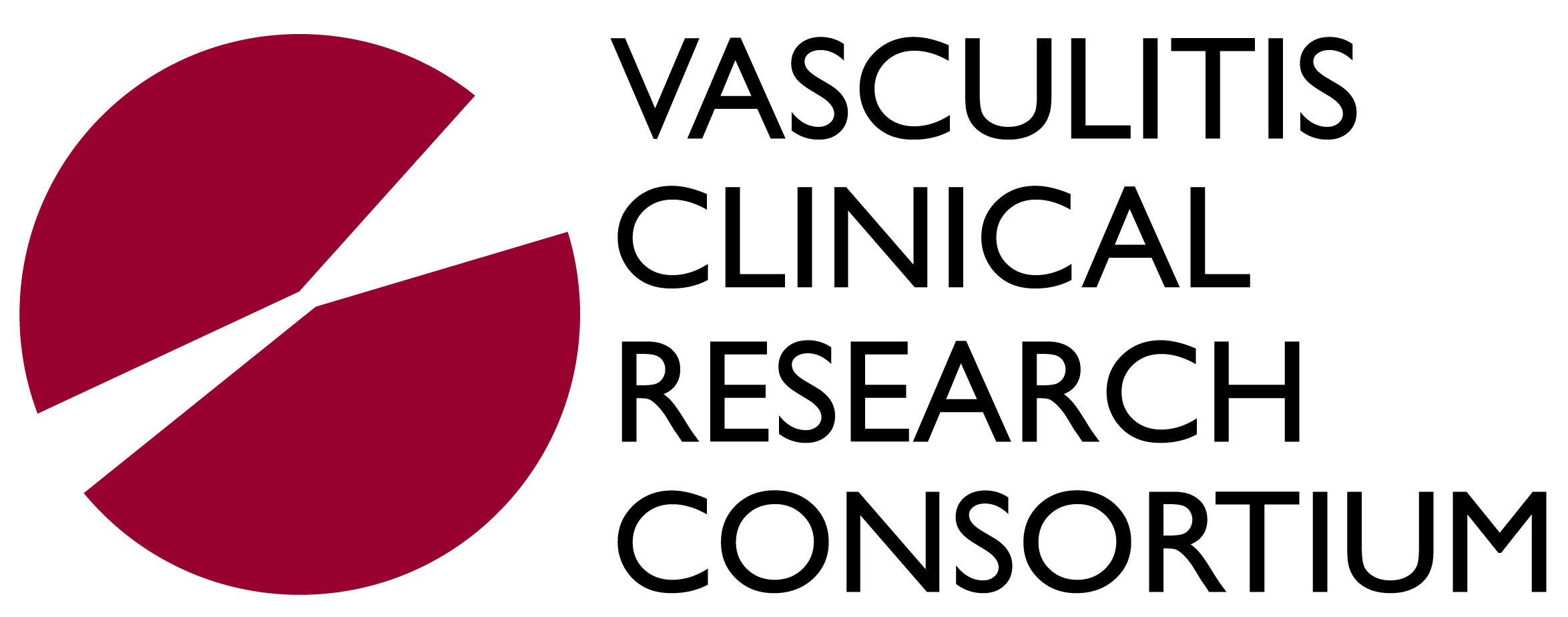VCRC-VF Fellowship Program
Summary
The Vasculitis Clinical Research Consortium (VCRC)-Vasculitis Foundation (VF) Fellowship is a mentored training program of up to two years for physician-investigators who have indicated a commitment to vasculitis and wish to pursue a period of specialized training with an emphasis on clinical and/or translational patient-oriented clinical investigation. The trainee will undertake the Fellowship a VCRC-affiliated site in North America that has an established distinct clinical and research program in vasculitis and availability of senior faculty mentors. There is no core curriculum for the VCRC-VF Fellowship. Fellowships are tailored to the individual Fellow, depending on the fellow’s interests, background, and type of Fellowship(a one-year clinical Fellowship, or a two-year research/clinical Fellowship), and the unique resources and opportunities at the host institution. Being named a VCRC-VF Fellow is neither dependent on, nor a guarantee of, funding support for the Fellow by the VCRC-VF.
Goals
There are two principal goals of the VCRC-VF Fellowship:
- For the Fellow to be involved in the care of enough patients with various forms of vasculitis to develop experience and expertise in the diagnosis and management of patients.
- To familiarize trainees with the major unmet research needs in vasculitis, the investigative techniques used in clinical and translational research in vasculitis, and understand how to conduct high-quality clinical research in vasculitis.
Eligibility
- The candidate must be an MD (or equivalent) committed to a career in caring for patients with vasculitis.
- The candidate needs to have a strong interest in conducting clinical investigation in vasculitis.
- The candidate must have finished a residency and (preferably) have some sub-specialty training relevant to vasculitis(e.g. rheumatology, nephrology, or other disciplines).Candidates from various subspecialty backgrounds are encouraged to apply. If specializing, VCRC Fellowship training will take place after the applicant has completed their subspecialty training.
- The candidate must have a training license or full license to practice in the state/province where the Fellowship will take place from the START of the Fellowship period.
- The fellow must be a citizen of the host country or have a valid visa that is acceptable to the host site from the START of the Fellowship period.
Expectations of Awardees
- VCRC-VF Fellows are expected to devote nearly 100% of his/her professional time on Fellowship-related activities.
- VCRC-VF Fellows will comply with all requirements and guidelines as outlined in this document as well as additional reasonable stipulations or requests from the VCRC Steering Committee.
- VCRC-VF Fellows will be expected to become familiar with the Vasculitis Foundation and its purpose. Fellows are expected to take part in activities of the Vasculitis Foundation and Vasculitis Patient-Powered Research Network, including participation in symposia, webinars, newsletters, etc.
- VCRC-VF Fellow awardees may be asked to present progress reports on their work semi-annually to the VCRC Steering Committee.
- VCRC-VF Fellows are expected to present abstracts to the American College of Rheumatology or/and other appropriate specialty meetings.
- All Publications resulting from the Fellows’ work will acknowledge the VCRC-VF fellowship appropriately.
- A written progress report is required to be submitted by the Fellow semi-annually to the VCRC Steering Committee that will include i) a two-page summary of the progress made by the Fellows (written by the Fellow) and ii) a one-page evaluation of the Fellow by VCRC-VF Fellowship mentor.
- VCRC-VF Fellows will provide updates on their careers to the VCRC, upon request, for at least 10 years following completion of the Fellowship and will ensure the VCRC has active and accurate contact information for the Fellows at all times.
Requirements of the Host Institution
- The sponsoring institution and VCRC mentor must guarantee that the candidate will devote nearly 100% of his/her time to the Fellowship, including all research and clinical experiences. Fellows should ideally not be assigned to substantial non-vasculitis-related clinical duties and be freed of administrative duties.
- The sponsoring institution must take responsibility for ensuring the Fellow is paid his or her full salary and benefits. The sources of salary may include some combination of funds from the host institution, from the Fellow’s “home” institution, from various grants, and/or funds from the VCRC-VF Fellowship itself. VCRC-VF funds are dependent on availability of funds and priorities set by the VCRC-VF.
- The sponsoring institution will assume all costs and conduct the work required for the Fellow to obtain a valid visa (if needed) and appropriate medical license.
- The sponsoring institution will follow all relevant regulatory requirements of receiving US federal funds and funds from the Vasculitis Foundation.
- The sponsoring institution must recognize that any funding provided by the VCRC-VF will only be provided if the Fellow has the legal and local regulatory requirements in place to both see patients and conduct human subject research at the START of the Fellowship and the sponsoring institution will be at risk of providing all costs of the Fellowship (or a portion thereof) if this requirement is not met.
Tracks Available to VCRC Fellows
- Research/clinical fellow for two years that includes a minimum of two half-days per week in a vasculitis clinic over two years, combined with a research project(s) under the guidance of a mentor. Preference given to those with a specific plan for didactic training, which may include completion of a post-graduate degree (Master’s or PhD) or research certification program.
- Clinical fellow for one year which includes three to four half-days/week of clinical training in vasculitis and some didactic curriculum at a sponsoring institution to assist in carrying out research. A research/academic project is expected to be completed in this time frame.
- Other. Occasionally, a VCRC-VF Fellowship may involve a time course and/or structure different from above to accommodate unique circumstances. A detailed description of any such alternative approaches must be included in the Fellowship application.

